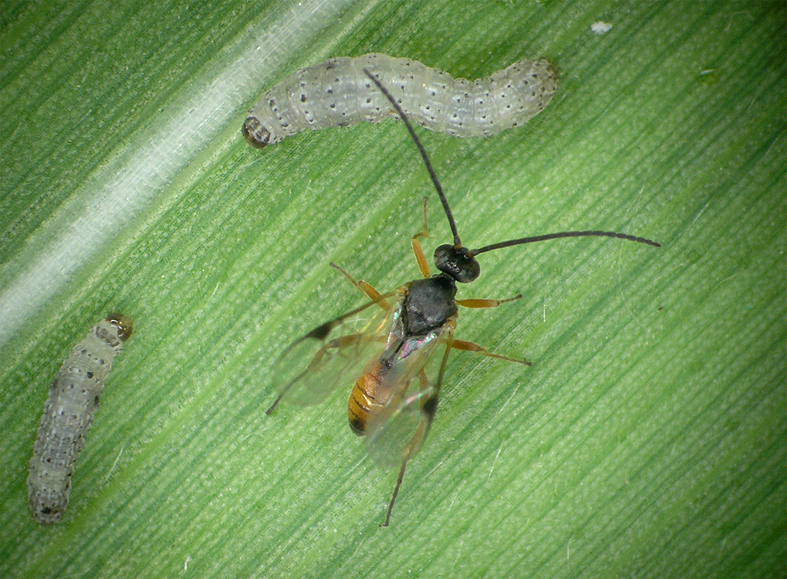When pests attack some plants produce chemicals that attract the enemy of their enemy scientists have discovered these odors called volatiles attract bodyguards just in time to shoot down the plants attackers

When Pests Attack, Plants Call for Backup

Plants are under constant threat from an array of pests, such as insects and herbivorous animals, that feed on their leaves, stems, and fruits. However, scientists have made an intriguing discovery about the way certain plants defend themselves against these attackers. When pests strike, some plants release special chemicals known as volatiles into the air. These volatiles serve an important purpose – they attract the “bodyguards” of the plant world, natural enemies of the pests, just in the nick of time to take down the plants’ attackers.
Researchers have termed this phenomenon as “the enemy of my enemy is my friend” defense strategy. Essentially, plants facing danger from pests utilize the power of chemistry to defend themselves. They emit odoriferous compounds, commonly referred to as volatiles, that have a dual purpose. Firstly, they serve as a distress signal to alert neighboring plants of the impending danger. Secondly, and even more fascinating, these volatiles act as a beacon attracting the attention of predators or parasites that feast on the pests causing harm.

Scientists have observed that these bodyguard insects and other predators rely on their olfactory senses to sniff out the volatiles released by the plants under attack. Upon sensing the odor, they come to the aid of their unassuming “green friends.” This clever defense mechanism allows the plants to recruit predatory creatures such as wasps, beetles, and bugs to engage in a battle on behalf of the plant.
The recruited defenders either eat the pests directly, lay eggs on or in the bodies of the pests, or parasitize them. This often leads to the death or incapacitation of the pests, effectively putting an end to the plant’s attack. By mobilizing these natural enemies, plants are able to minimize the damage caused by predators and reduce their own risk of being harmed.
The discovery of this fascinating defense strategy has significant implications for the agricultural industry. It opens up new possibilities for eco-friendly pest control, allowing farmers to reduce the reliance on chemical insecticides that can have negative effects on the environment and human health. By harnessing the power of nature, plants demonstrate their ability to masterfully orchestrate their own defense.
Scientists are now rigorously studying the complex interactions between plants, pests, and their predators to better understand these chemical communication systems. By comprehending the intricacies of this natural defense mechanism, researchers hope to develop innovative strategies to enhance crop protection and sustainable agriculture practices.
Source: Science News for Students
Related Posts
Quick Links
Legal Stuff

